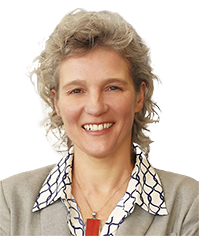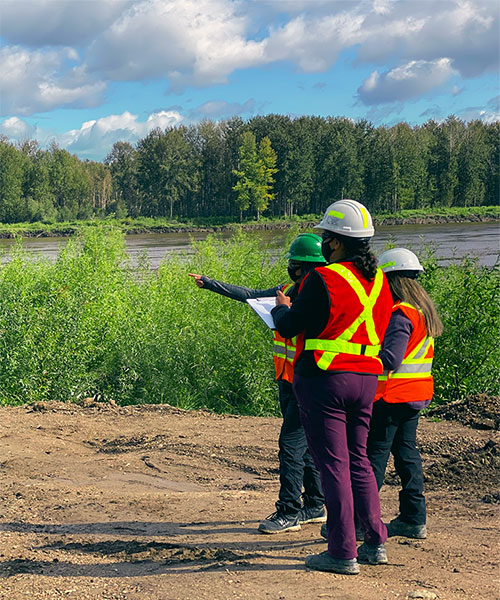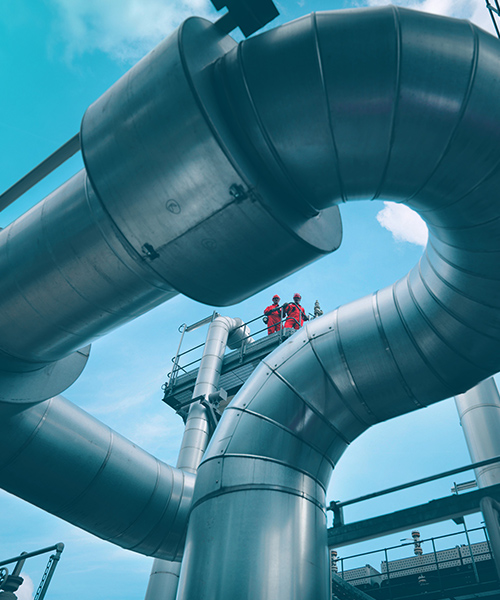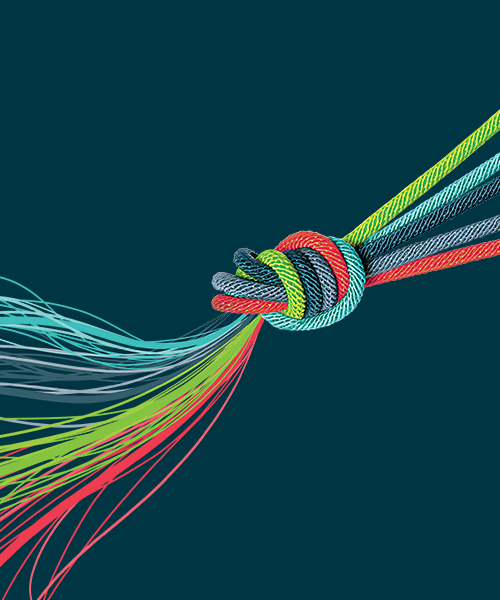October 31, 2024 • 4 min read
Sustainable development: How we’re sharing value with Indigenous communities
The benchmarks for a successful project are changing. And no project can be truly successful unless it shares value with surrounding communities.
Sustainable development is about more than just environmental impacts. It’s also about creating meaningful social partnerships with communities and Indigenous groups where we work.
“Our relationships with communities surrounding our customers’ assets are so important,” says Dr. Mary Lou Lauria, Senior Vice President, Environment & Sustainability – Global, based in Vancouver, Canada.
“A growing part of our role in projects is engaging with local communities and Indigenous groups to understand their needs, in addition to our focus on demonstrating stewardship of land and water. These considerations are different each time. But they are decisive factors for projects going ahead.”
So, how are we turning this engagement into real value for Indigenous stakeholders?
A guide to sharing value and building trust with communities to achieve net zero
Growing community resistance to projects is affecting developers’ ability to deliver new infrastructure required to meet net zero. This guide outlines emerging thinking and provides practical tips for building trust with communities and other stakeholders, so critical projects can proceed.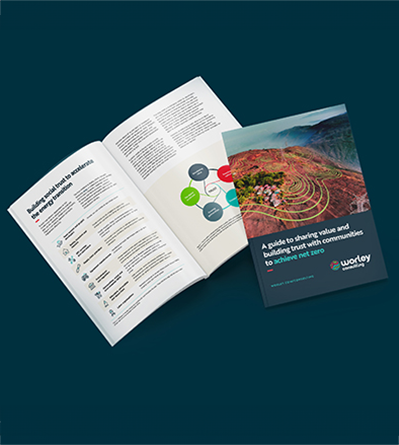
Partnering to achieve fairer outcomes for Indigenous communities
Quality engagement doesn’t happen in isolation. That’s why we’ve created multiple partnerships with Indigenous communities in Alberta and the Northwest Territories of Canada, through our environmental consulting services.
“In Canada, there’s growing acknowledgment of the need for Truth and Reconciliation with Indigenous Peoples. The voice of Indigenous communities at the industry table is louder than ever, and we need to accommodate it to begin economic and environmental reconciliation through our work.”
Mary Lou steers our membership of the Canadian Council for Indigenous Business, which commits us to work with Indigenous businesses, build community relationships and provide meaningful employment to share in the wealth creation from projects.
We’re involved in three partnerships with Indigenous groups. Our newest is a limited partnership between Mikisew Cree First Nation, Fort McKay First Nation, and Advisian – now Worley Consulting – in Alberta, Canada.
This limited partnership, named Desika, demonstrates our commitment to providing social, environmental, and economic benefits to Indigenous communities surrounding our projects.
Mary Lou describes the significance of Desika’s work and the nature of engagement in the region.
“We’re not only hiring Indigenous members directly into our business through our partnership with the Mikisew Cree and Fort McKay First Nation, but we’re also working with Indigenous community members to provide access to training and skills development,” she says.
“We also participate in community events and encourage employment opportunities on our customers’ projects and within our consulting business.
“It’s an exciting time, and this success is driving us to explore new opportunities to work with Indigenous businesses across Canada, too.”

A permanent shift in project priorities
The value of partnerships like Desika reflects a broader shift among energy, chemicals, and resources producers, as they explore new ways to create more sustainable outcomes from their projects.
“People, water, natural capital, protection of the land, and offsetting greenhouse gas emissions have always been important in project delivery. But they haven’t always been top priorities.”
However, as Mary Lou explains, the rise of environmental advocacy, social justice, and evolving stakeholder expectations are driving this shift to environmental and social management in project delivery.
“For example, for new mine sites, mine owners know they need to engage Indigenous communities from day one. It’s now one of the first topics raised by our customers.”
For over two decades, Mary Lou has used her environmental expertise to support responsible project development for over two decades, embracing the shift toward sustainability and community relations.
“Twenty-five years ago, social value was a harder conversation than it is today,” she says. “But demand for our environmental services has been unprecedented over the past decade. Stewardship and protection of the land is a top priority for Indigenous peoples, and our customers appreciate this.
“We’re involved in everything from early site selection and concept designs to environmental impact assessments, permits and compliance, geotechnical investigation and design, contaminated site investigation and remediation, and water from sourcing, management and treatment,” continues Mary Lou.
“These services are crucial to the journey toward Reconciliation with Indigenous people in Canada and around the world, through environmental stewardship, sustainable solutions and collaboration.”
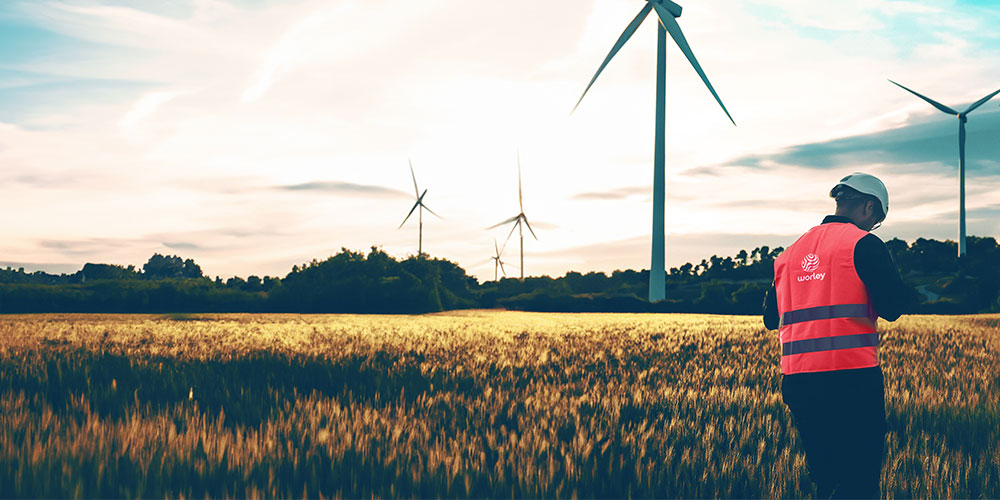
How community partnerships contribute to a more sustainable future
“The definition of sustainability has a significant social pillar,” says Mary Lou. “And community partnerships have positive ripple effects for decades to come. Seeing these ripple effects is one of the best parts of my job.”
Mary Lou has seen that offering employment, training, and STEM career paths – and providing structured development opportunities – are the foundations of successful Indigenous community partnerships.
“By working with the wider community and offering opportunities for Indigenous people to participate in our projects and services, we can better understand and meet their specific needs. We wouldn’t have this level of insight without partnerships like Desika, Nu Nenne Advisian and Tłegǫ́hłı̨ Reclamation Services (TRS) Advisian.
“Making long term sustainable transformation a reality – and delivering the scale of infrastructure required to meet the net zero challenge – depends on sharing value and creating positive community outcomes wherever we can. That’s the legacy we want to leave.”

